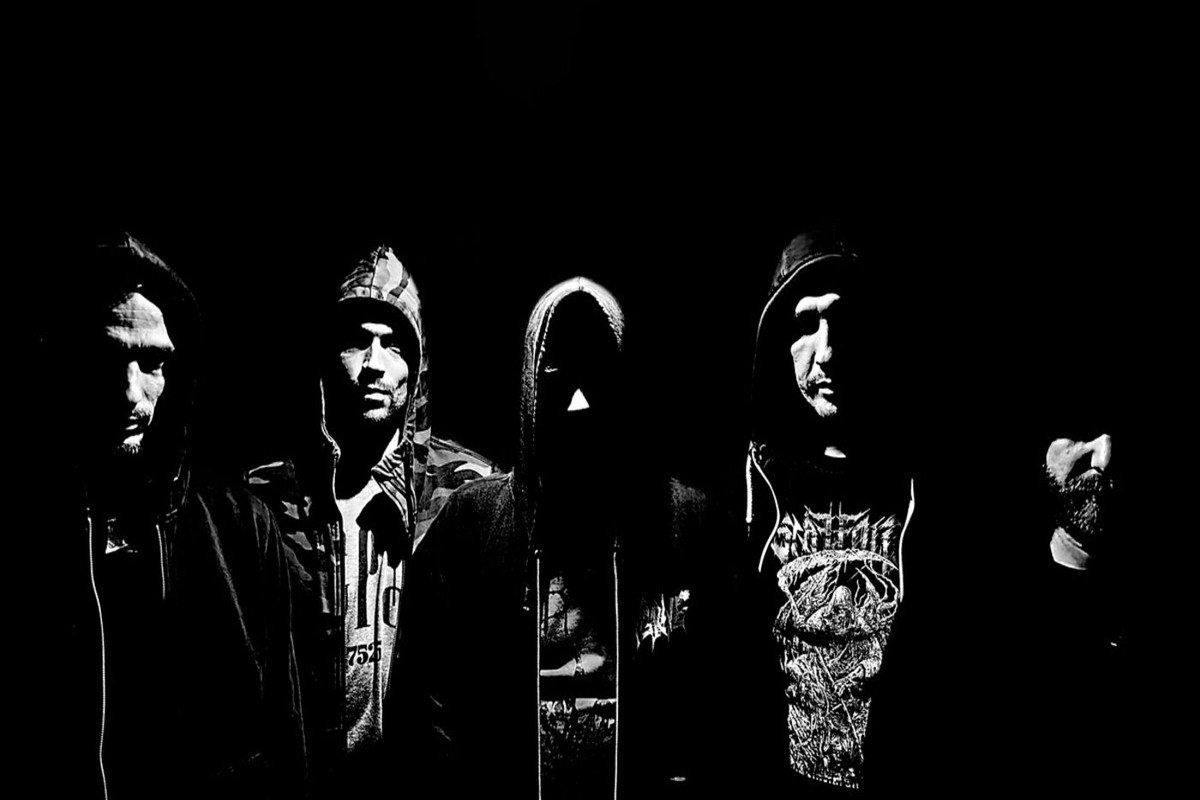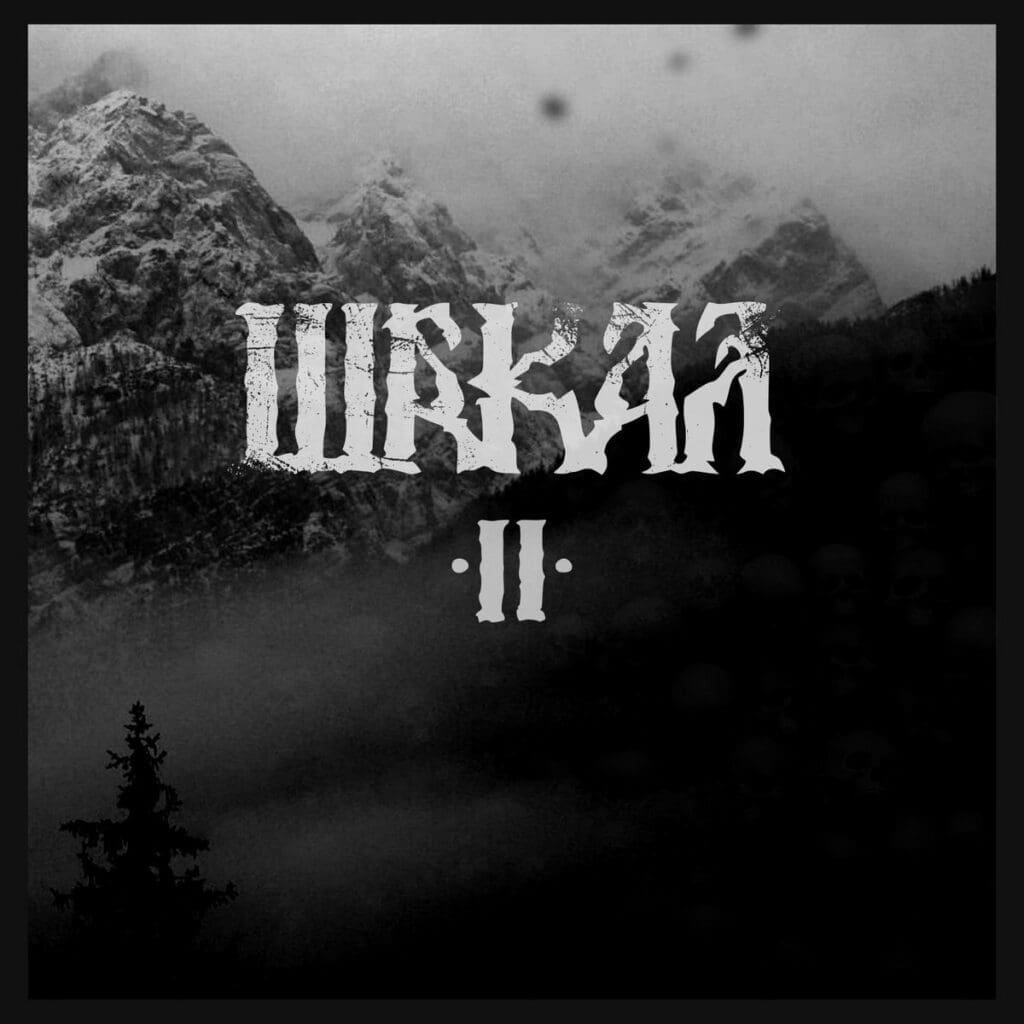Šakal — II Review
Sakal (Šakal) (Шакал) is a Serbia Black Metal band founded in 2021, On May 30th, 2025, The Band independently, unleashed their second full-length, album “II.” The name Šakal means “Jackal” in most Slavic languages.
The First Three Sins, The Summary
The Fourth Sin, Overall Discussion
Into the Fog: Hrast and the Ritual Awakening
As soon as the listener presses that button, the opening piece, Hrast, hits you immediately with a deep, slow-moving wall of sound. It’s drowned in thick, droning distortion that slowly drifts like fog settling over a dark forest. The pace is creeping, almost ritualistic, designed to pull one into a trance before the music truly begins.
Beneath this swirling mass of sound, raspy vocals emerge rough, guttural, as if old bark is cracking under the strain of unseen forces; the rhythm mimics the heartbeat of something ancient, something inextricably linked to earth’s primal roots.
The Shape of Time, the Weight of Tracks
The album, titled II, unfolds over forty minutes divided into six blackened fruits of art tracks of pure, old-school black metal. Each composition has its own time stamp, adding variety and unpredictability. The third track—shorter than the rest—runs a little over four minutes, punching a deep, punchy force into the listening space. The fifth track extends beyond six minutes, immersive and heavy, pulling the listener into a slower, more contemplative space. The initial two opening pieces encompass a total of five minutes.
The last two—the fourth and the sixth—break the mould again, stretching pass the eight-minute mark. These longer compositions build and evolve, creating a sense of cycles, of eternal return.
Myth Incarnate — Echoes of Slavic Soil
Sakal’s music offers more than just black metal; it’s a forceful echo of something raw and primal. A harsh sound but not chaotic—raw yet atmospheric, blending melodies that bite with an air of reverence. With lyrics drawn heavily from Slavic mythology and heathen heritage, tapping into age-old traditions and mystical symbols. The themes make their music feel like an incantation, recalling ancient rituals, forgotten gods, and the deep spiritual bond between humans and the natural world.
Tracks like Hrast and Groma Sin evoke vivid imagery — sacred trees rooted in myth, thunder gods rumbling across stormy skies, all woven seamlessly into the music.
Lo-Fi Intentions, Full-Bodied Results
Sakal‘s II production is accompanied by a deliberate decision: it pushes into the lo-fi aesthetic of vintage black metal, but complements it with an edgier, more modern sound. Instead of rawness competing with clarity, that’s both powerful and true. All the instruments breathe; all the riffs slice through distinctively. The result is a sound that feels rightly based in retro black metal but presented with new, full-bodied vitality. The production suffuses the atmospheric layers so the riffs and melodies can stay longer—offering a sound that is both retro but present, forceful in its unvarnished truth.

Veterans at Work: Instruments of the Pagan Cold
After conducting some research, I discovered that the Šakal band members are all seasoned veterans of the Serbian metal scene, bringing decades of experience to the table. This is evident in their confident and purposeful execution. Within this dark, fruitless devilmanship, every note and arrangement, both instrumental and musical. The guitars paint bleak, icy landscapes—sharp tremolo riffs layered with dense distortion capturing the cold, harsh winter of the pagan worlds they evoke. The dual guitar setup allows for harmonized leads and atmospheric layering, giving their songs both aggression and depth.
Earthbound Pulse and Vocals of the Ancients
Sakal‘s bass lines don’t just follow the guitars — it adds weight and a subterranean pulse, often cutting through the mix with a gritty, overdriven tone that reinforces the band’s primal energy, giving the music a subterranean pulse — like roots digging deep into ancient soil. The drums are tight and relentless, yet dynamic. They switch from blast beats that mimic fury to slower, ceremonial rhythms that carry a voice of tradition. Furthermore, the percussion is crisp and punchy, shaping the mood without overwhelming the other layers.
The vocal work stands out with its roughness and raw emotion. The vocals are harsh, ragged, almost strained with echoes that make the voice seem like an invocation. They shift from deep growls to screamed outbursts and whispers-voices that feel like spirits summoned from the earth. Each vocal line seems spiritually tethered, as if channelling forces older than time.
They are synths or effects here — just reverb, space, and a restrained approach that keeps the focus on the primal power of the voice.
Highlights and Hymns of Fire and Frost
Highlights: Vučji dani, a slow burning epic where each change in mood feels earned and true. The dark harmonies recall old Enslaved or Drudkh, but the emotion is uniquely Sakal’s. Groma Sin is almost punk-like in its velocity but never loses its mythic weight, and U krivi closes the record with a bleak funeral grace.
Cultural Conviction and Mythic Reverence
Overall, what sets Šakal apart is their commitment to cultural authenticity. Their use of mythological motifs isn’t mere decoration. Feeling like an aim to embody a worldview rooted in tradition, resisting modern dilution. Their music becomes a vessel for memory, identity and resistance, blending ancestral stories with raw fury. Every track feels like a chant, a prayer, a defiant stand of cultural pride.
Closing: In Frost and Flame: A Final Reflection
Closing the album with the closing piece, U Krive, going for a slower, more deliberate tone with a sense of finality. Melodies that feel mournful, almost funeral… building toward a bleak, cathartic climax — a reckoning — personal or cosmic — it’s hard to say! We want to give a shoutout to Šakal for letting us review their album, II. Now, we are going to conclude the review by talking about the final three sins and concluding the review.
The Fifth Sin, The Memorabilia

The Sixth Sin, The Artwork
The Seventh Sin, Disrelish
Šakal
Milan Šogorov — Drums
Vladimir Mušicki — Guitars
Veljko Ivković — Guitars, Vocals
Khargash — Bass